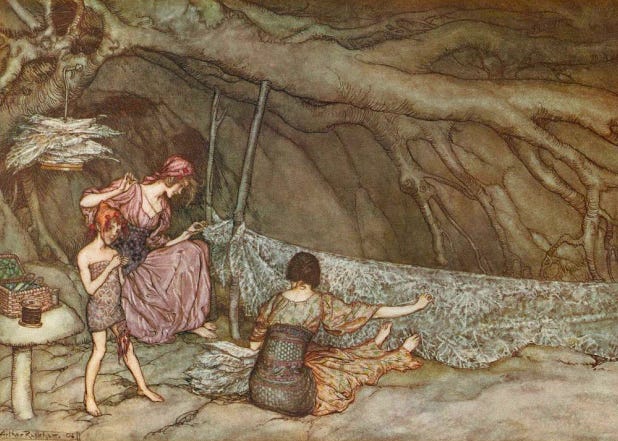I interrupt my chain of essays (Part I, Part II, Part III, Part IV) on how you should set up the details of your masquerade -- to discuss whether you should. At least, to what extent.
You introduce the masquerade as a plot device to tell the story you want. This should influence everything in your choices of elements for the masquerade, down to the level of detail you include. For some stories, it's part of the foreground. Others, it fades into the background.
Obviously, if your heroine joins those hunting down the monsters that threaten the masquerade, or your hero hunts desperately for an affiliation within the masquerade so he can avoid those who would destroy his mind if needed to protect it, the details of the masquerade are vital. They determine the details of the plot and the characters in it. Or vice versa.
In simplest form, that the hero is sufficiently protected if he merely works for the local werewolf hall (or fairy hill, or choir of jackalopes) can be introduced to allow him to get that job and so resolve his problem, because that ending is plausible and in character for him.
In another form, it matters a great deal whether the monster hunters can identify the monsters as incipient menaces and take them out early, with nothing more than a cover story about having to deal with a broken machine in the subway or the like. Or, conversely, whether the monster taken out in the middle of Main Street where a massive cover-up is needed. The first needs a great deal less detail about the masquerade than the second. It may just be the backdrop to enable the fights.
Then, if your heroine escapes her abusive family by running into the masquerade and must master the magic to stay, she may stay so entirely behind the masquerade that it's all moot. If your hero gets a job acting as a personal shopper to a dragon, he may concern himself only with the question of hiding who he's buying for. If your heroine is a fae seamstress working for the fairy godmothers, she may grumble that in the old days, you could make ballgowns that were magic, not just use magic to create mundane though beautiful gowns.
Now, a writer can develop all sorts of details about the masquerade that do not directly affect the plot. It may be wise to develop some of them and artfully slip them into the story to fill out the world, to make the world seem strong and real, and existing beyond the scope of the tale. This can also sometimes support the themes of the story, as when the heroine escaping her family learns that many wizards support the masquerade because anyone can learn magic, and they wish to have exclusive power.
Still, be wary of the impulse to dump the details in the story. Exposition benefits greatly from being relevant, and it has few other benefits to add. (Characterization, sometimes.)
Worse, putting in too many details can be a distraction from the main story. Particularly if they are odd details. If the bureaucrats know that the fae knights gamble on which excuse the bureaucrats will use next, and make a point to check the odds and choose accordingly -- whether spitefully or to make money flow a specific way or simply as a gauge of what they have overused -- your readers will expect this to pan out in some way. You have planted a Chekhov's gun in the story whether you meant to or not.
Therefore, if the masquerade is not central to the plot, if it hangs out in the background, it is just as well to make the details simple and cliche. This avoids drawing attention.
Making the foreground interesting enough will distract from it. You still want it to be coherent, so people will not argue about how it does not work once they have time to think about it. (Well, reasonable readers. Unreasonable readers, alas, can not be stopped by any mortal force.)
Furthermore this has the advantage that if you end up writing a sequel, you can focus in on the masquerade if that story puts it in the foreground. Then you give it the details needed without being too boxed in by the earlier story, and the details make it clear it is not cliche.
What in the first story was just directions to put up a sign claiming water leak or gas leak turns into a careful discussion of which one is more likely to be plausible, and whether too many gas leaks will cause political issues or inspire gas company employees to investigate. Perhaps ending with a fae explaining that they had to infiltrate the gas company because of too many "gas leaks."
That, however, is just a beneficial side-effect. First, you deal with the first story, and adjusting how detailed the masquerade is to its needs.




